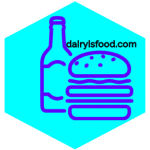Here are some tips for eating healthier naturally and permanently.
1.Eat breakfast and don’t skip meals.
Eat more often to avoid a completely empty stomach, which can make you overeat at your next meal. Instead of skipping meals, plan to eat four to six small meals or snacks, spaced 3 to 5 hours apart.
2.Choose carbohydrates carefully.
This is a common perception in avoiding Carbs, but you don’t need to avoid all carbohydrates. But you should refrain away from simple carbohydrates, such as sugar, white bread, white pasta, and white rice. These foods are quickly turned into glucose by the body, and the influx of glucose causes a rapid rise in the hormone insulin, whose job is to escort glucose out of the bloodstream and into cells. A surge of insulin is followed by a glucose fall, which leaves you hungry in no time. Instead of simple or refined carbs, focus your attention on complex carbohydrates, found in whole grain foods as well as vegetables and fruits. These are more likely to be low glycaemic, which helps prevent or manage diabetes.
3.Choose bulky foods.
Foods that contain plenty of fibre, water, or air are “bulky” or “high-volume” and will help you stay fuller longer. These include high-fibre fruits and vegetables as well as beans. Instead of eating a handful of raisins, choose water-dense grapes. Choose bulky foods as always your first choice.
4.Cut the fat but don’t strive for a fat-free life
Cutting fat from your diet makes sense because fat is the most concentrated source of calories. Banish the frying pan in favours of steaming, grilling, baking, or microwaving. Choose lean cuts of meat and trim off visible fat. And stay away from sausages, bacon, and cold cuts. Don’t attempt to cut all the fat out of your diet. Research has shown that people are better able to maintain their weight loss when their diets allow at least some foods that contain healthy fats—for example, nuts, avocados, ghee (clarified butter ) olive oil.
4.Drink plenty of fluids—especially water. Drink water and lots of it.
Seltzer and mineral water are good choices. Fluids quench your thirst and reduce your appetite as well. Fruit juice is healthy but adds calories without fibre. Coffee or tea is fine. Allow yourself to have an occasional glass of wine or beer if you wish, but be aware that they add more than 100 calories per glass.
5.Eat more calcium-rich foods.
Some researchers suggest that calcium may stimulate fat loss by suppressing hormones that cause fat to be stored rather than burned. Adding calcium-rich foods such as milk, yoghurt, or other dairy products to a low-calorie diet may make it easier for your body to mobilize fat stores and burn fat.
6.Avoid depriving yourself.
Let yourself have small portions of your favourite high-calorie foods once in a while so you don’t get frustrated and end up bingeing. And keep in mind that fasting can be bad for your health. Also, weight loss gained by fasting is rarely sustained once you resume eating.

